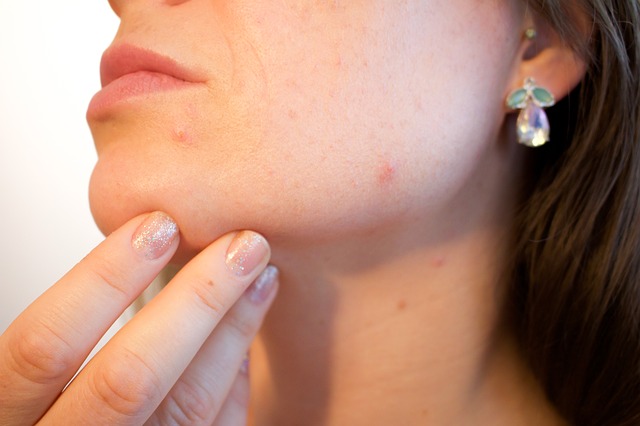Five Foods to Avoid for Acne Free Skin

Acne is as a result of skin pores getting blocked by oils and dead skin cells. Typically, your skin is supposed to secrete away impurities but blocked skin pores limits this ability. This blockage is what leads to acne.
Acne most often occurs on the face, chest, and upper back. According to studies, the risk of acne peaks in adolescence and decreases with age, but it can still affect adults too. Acne is typically triggered by hormonal changes and eating an imbalanced diet, but it is preventable and treatable. However, acne can be aggravated by other factors you can control.
How does diet affect acne? In simple terms, when you eat unhealthy meals, they cause a spike in insulin. The excess insulin results in increased inflammation and triggers your skin to produce more oil. This contributes to the clogging of follicles and can lead to acne. Many studies have confirmed the link between high glycemic load diets and acne prevalence, such as this one. Therefore, you should avoid foods that are high on the glycemic index or contain lots of simple sugars. If you already have acne, here are some foods to avoid when recovering and work towards acne free skin.
Dairy Products
When you consume milk, it spikes your insulin levels. As mentioned earlier, a high insulin level can lead to acne. Moreover, digesting the proteins in milk (whey and casein) leads to the production of the hormone IGF-1. This hormone is similar to insulin and is thought to be the reason dairy consumption is related to increased risk of acne, as found in this meta-analysis.
It is therefore essential to avoid ice creams and milk if you’re trying cure acne. Similarly, even if you don’t have acne, avoid consuming a lot of dairy products because preventing a condition is easier than treating one.
Refined Sugar and Grains
The primary function of insulin is to regulate blood sugar levels. So, imagine what happens when you eat refined sugar or grains. Insulin has to be produced in high quantities to curb the high level of sugars.
When you consume refined carbohydrates like cereals, pasta, bread, crackers and sugars like honey, agave and maple syrup, they are broken down fast.
It’s at this point that your body detects a high sugar level in the blood and produces more insulin to control it. Consequently, acne develops. Therefore, if you’re under acne treatment, avoid refined sugars that might jeopardize your recovery.
Foods Rich In Omega-6 Fats
Some of the most common food ingredients which contain large amounts of omega-6 fats are corn and soy oil. These fats cause inflammation in your body, which increases the severity of acne. However, it’s advisable to eat food rich with omega-3 fats, like walnuts and fish.
Food You’re Sensitive To
Anti-inflammatory drugs treat severe acne. Why? When you eat food you’re allergic to, your immune system identifies the food as harmful. Consequently, the immune system will launch a protective mechanism against that food.
This response results in pro-inflammatory molecules moving in your body, leading to acne.
How do you know you’re sensitive to food? Find a dietician who will look at what you eat, advise on what to eliminate, and then observe the results. They can then advise you to add eliminated ingredients back to your diet one by one until you identify which food you’re sensitive to.
Junk Food
Eating fast foods is unhealthy. It is among the first reasons that lead to hormonal imbalance and thus acne. Also, junk food contains unhealthy fats, which if taken in large quantities could lead to skin problems. Therefore, if you’re under acne treatment but not making progress, then avoid eating junk food for a while and watch the results.
Eat Healthy and See Your Way to a Beautiful Skin
One of the first things people notice about you is your skin. Moreover, beautiful skin gives you confidence. Therefore start eating healthy and you’ll be able to prevent or treat your acne condition in no time. If you’ve followed the above advice but have seen no improvement then you should consult a doctor who may prescribe you effective medication to treat acne.

